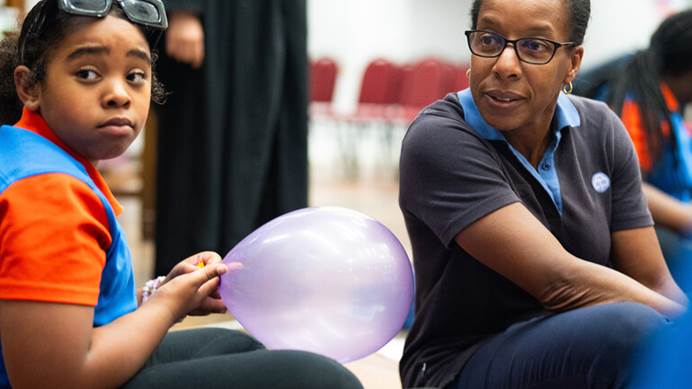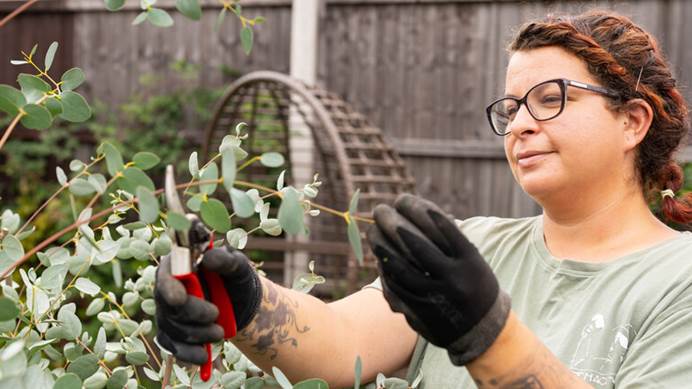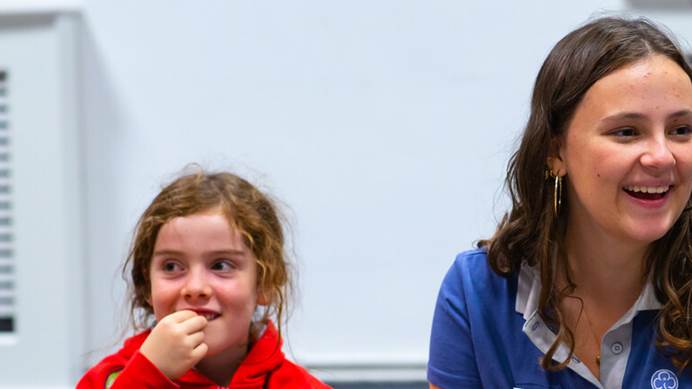Event role descriptions
Use these role descriptions to plan who's doing what in your event team
When you’re in the early stages of planning an event, it’s important to consider your event team and its structure.
The team you'll need will depend on the type of event you're running.
Depending on the scale of your event, you may want to consider asking potential team members to come together in-person so you can see how people work together before choosing your team. You could do this for both the lead event team and event volunteers, or just the lead event team.
The type of event will also determine how you recruit volunteers. Do you already have people in mind, or will you run an application process? If you’re going to run an application process, consider how to make sure it’s fair and inclusive. You’ll need to check references, skills, knowledge and any qualifications needed before allocating volunteers into roles.
Planning team
You should form your planning team at the beginning of the event planning process, plenty of time before your event. It should include the key people needed to make your event happen.
Depending on the size and nature of your event, you may need people in different roles. Below are some suggestions of roles – these may or may not be appropriate for your event. It’s also good practice to draw up a role description for each role, so expectations are clear for both parties. These role descriptions can evolve over time, because at the beginning of the process, you may not know what the event will look like at the end.
There’s no right or wrong way of setting up an event. Think about what would work best for you and your event, making sure all areas are covered.
You could split bigger roles up between different people, so people can volunteer more flexibly. Volunteers may also be able to role-share depending on the role and people appointed. Try to have a mix of ages, sections represented and experience on your event team. Where possible, try to have 2 members under the age of 26.
Depending on where the request for the event has come from, there may already be volunteers in positions who can slot into your event planning team. You may also have ideas of who you want to be part of your team. But it’s important to make sure your recruitment process is fair.
Reporting to: commissioner or person identifying the need for the event.
Responsible for: all event volunteers.
Responsibilities could include:
- Managing the event and all volunteers.
- Appointing the planning team.
- Chairing the planning team.
- Ensuring regular communication between the commissioner and event team.
- Delegating tasks to the planning team, and coordinating and monitoring their input.
- Making sure all documentation and risk assessments are completed.
- Having overall responsibility for the event.
- Being an advocate for the event and promoting it across networks.
Reporting to: event lead.
Responsible for: event leader to confirm.
Responsibilities: event leader to confirm.
Usually, the event lead and deputy event lead work closely together. It’s important for them to have a good working relationship. One of the deputy event lead’s roles will be to deputise for the event lead if needed.
Reporting to: event lead.
Responsible for: finance team (if needed).
Responsibilities could include:
- Setting up financial controls and procedures.
- Managing the budget.
- Keeping up to date records of income and expenditure.
- Highlighting budget over- or under-spend.
- Preparing summary accounts as needed.
- Making sure all invoices and expense claims are processed.
- Keeping track of payments and updating the administration team.
- Managing any income-generating area at the event.
- Managing cash procedure and cashing up.
- Managing merchandise.
- Managing procurement.
If it’s a district, division, county or region event, there may already be a treasurer in place. If so, they may want to take on the event. If they don’t want to take on the treasurer role, you’ll need to appoint a different treasurer. They’ll link up with the current treasurer for certain tasks.
Reporting to: event lead.
Responsible for: health and wellbeing team (if needed).
Responsibilities could include:
- First aid and making sure appropriate first aid records are kept.
- Safeguarding.
- Ensuring the welfare of participants and volunteers.
- Making sure any incidents are followed up and reported using the correct procedures.
- Confirming that adjustment plans are completed for the event volunteers.
Reporting to: event lead.
Responsible for: safety team (if needed).
Responsibilities could include:
- Traffic management.
- Car parking.
- Event security.
- Fire safety.
- Licensing (including liaising with appropriate external bodies).
- Emergency and major incident plan.
- Noise regulations.
- Infectious diseases.
- Food safety.
Reporting to: event lead.
Responsible for: marketing and media team (if needed).
Responsibilities could include:
- PR (both internal and external).
- Website.
- Social media (before and during the event).
- Photographs and videos (during the event).
- Sponsorship (if needed).
Reporting to: event lead.
Responsible for: facilities team (if needed).
Responsibilities could include:
- Site services.
- Maintenance (if appropriate for the agreement you have in place with the venue).
- Build plans (including maps and dates of build and take-down).
- Any infrastructure that needs to be installed.
- Contractors relating to facilities.
- Waste disposal.
Reporting to: event lead.
Responsible for: programme team (if needed).
Responsibilities could include:
- Activities (including third party providers).
- Daytime programme.
- Evening programme.
- Making sure activities are age and section appropriate.
- Ceremonies.
Reporting to: event lead.
Responsible for: administration team (if needed).
Responsibilities could include:
- Participant communications.
- Volunteer communications.
- Information/help desk.
- Check-in.
- Lost property.
- Campsite and/or accommodation allocation.
Depending on the size of your event and the number of volunteers you have, event leads may find this position useful.
Reporting to: event lead.
Responsible for: volunteer welfare team (if needed).
Responsibilities:
- A volunteer lead can offer extra support to volunteers. They can also make communication between the event team and volunteers more efficiently.
Event volunteers
It’s important that you have the right number of volunteers in each team. How many volunteers do you realistically need to do the job? Some teams are often deemed more exciting, with large numbers of people wanting to sign up for them. However, it’s important to have balanced numbers in all your teams.
If you’ve put together an application form for volunteers and they’ve noted their first and second choice of role, it’s important to include a disclaimer saying these aren’t guaranteed. After you’ve allocated teams, be prepared for people to drop out if they haven’t been allocated their first or second choice, or if they don’t view their given role as fun.
It’s important to have a mix of people within each team. Think about ages, experiences, skill sets and any additional needs the volunteer has.
If you have under 18s volunteering, make considerations for this. Think about who will supervise them, what role they’re given, and any training needs.
Download copy of event role descriptions
Edit and adapt these role descriptions to help you plan the event team for your own event.


